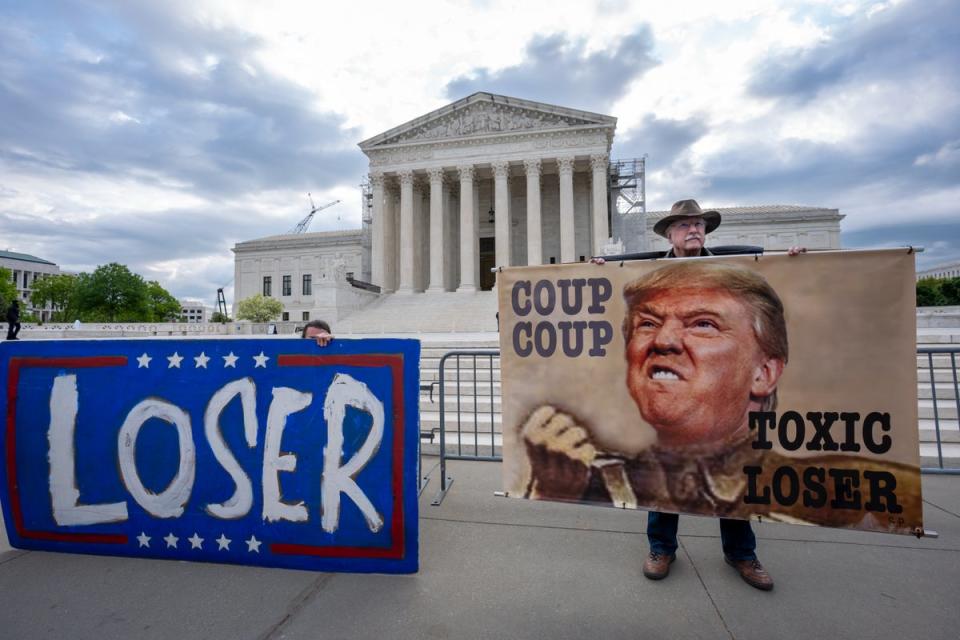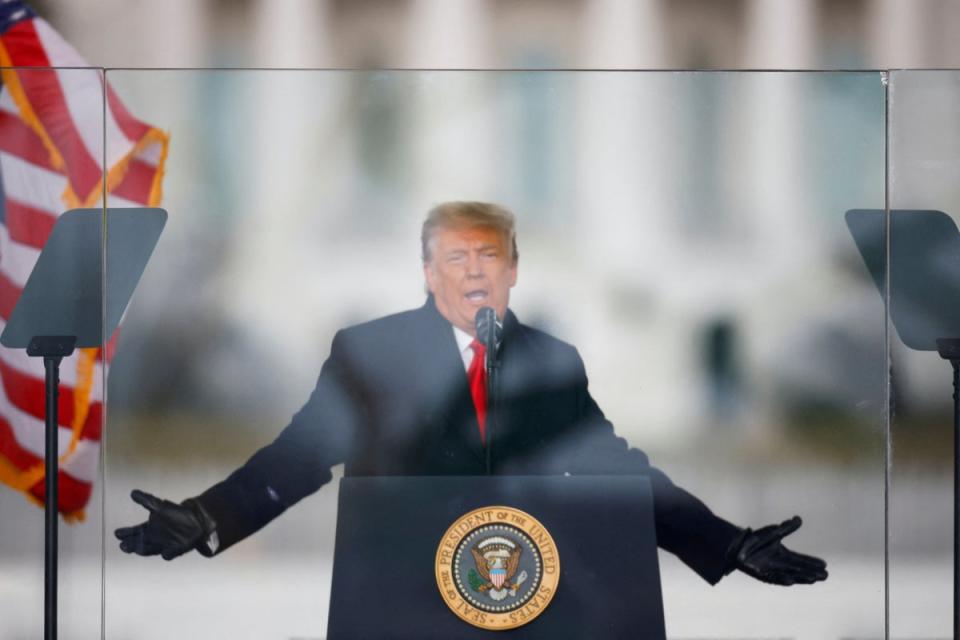Supreme Court justices appear poised to offer Trump some immunity – potentially delaying Jan 6 trial
The Supreme Court justices appear poised to offer Donald Trump and future US presidents some form of immunity from criminal prosecution for their actions while in office – while rejecting broad absolute immunity.
The nation’s highest court heard oral arguments on Thursday in a historic case which the justices acknowledged has “huge implications” for not only the former president’s criminal cases but also for America’s future.
“This case has huge implications for the presidency, for the future of the presidency, for the future of the country,” Justice Brett Kavanaugh said.
Mr Trump’s lawyers claim he has presidential immunity from charges of federal election interference brought by Special Counsel Jack Smith over the former president’s actions around the 2020 election. Mr Smith’s office claims that he does not.
During the arguments, the conservative male majority of the court toyed with the idea of awarding some protections to Mr Trump in his case.
Chief Justice John Roberts, Justice Samuel Alito and Justice Clarence Thomas raised concerns that, without protections, presidents could face politically-motivated prosecution for actions they take while in office.

A narrow decision that aligns with that line of thinking would outline certain types of “official acts” that justices believe are protected from criminal prosecution.
Mr Trump has previously contended that all the charges relate to “official” acts, rather than “private” acts, and so are protected by presidential immunity.
The justices struggled to differentiate what would be regarded as an “official” act versus a private act and hinted that this could be handed back to a lower court to decipher.
For Mr Trump, this could hand him something of a win in his federal election interference case by further delaying it from going to trial while the legal wrangling plays out – meaning it may not get to trial before the November election.
Meanwhile, the liberal justices of the court and conservative Justice Amy Coney Barrett seemed highly skeptical of awarding sweeping criminal protections to presidents yet also questioned the attorney arguing on behalf of Mr Smith how they could rule narrowly.
Justice Ketanji Brown Jackson questioned whether, instead of issuing a narrow ruling in the case, the court should instead answer the broader question of whether a president has immunity from all criminal prosecution with a simple “yes” or “no”.

Mr Trump is accused of attempting to overturn the 2020 presidential election results by making false claims of election fraud, conspiring to install fake electors and pressuring his then-vice president Mike Pence.
Michael Dreeben, the prosecutor arguing on behalf of Mr Smith, suggested that some of the allegations laid out in the indictment, like speaking to private actors in the alleged fake elector scheme, would constitute private actions. John Sauer, the attorney representing Mr Trump, agreed that some of the alleged acts were indeed private actions.
It is unclear when the Supreme Court could rule in the case.
Mr Smith asked the court to expedite the decision to help move the federal election interference trial along – but the justices have already signaled they are in no rush.
Most Supreme Court decisions are handed down between late April and mid-June.
